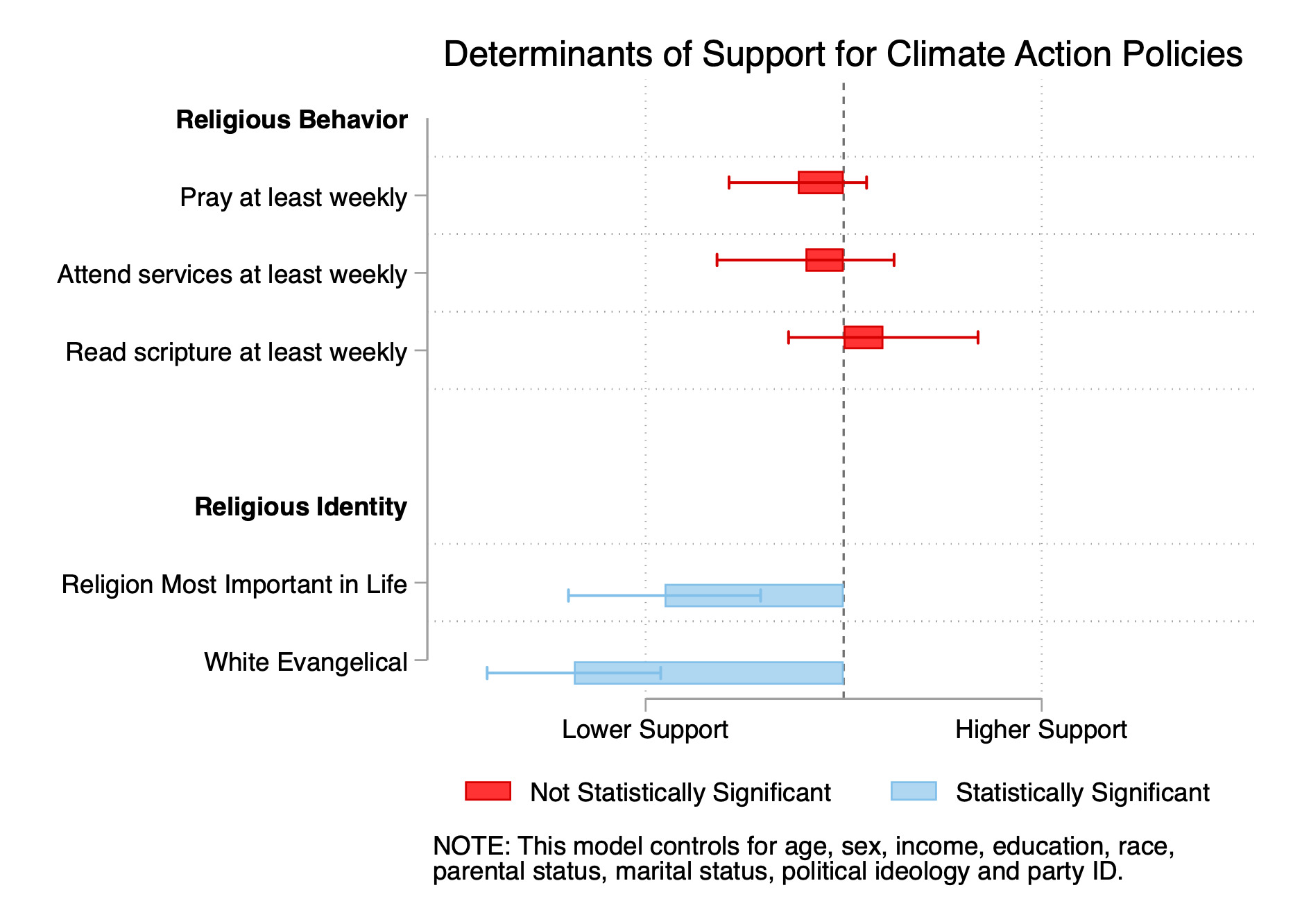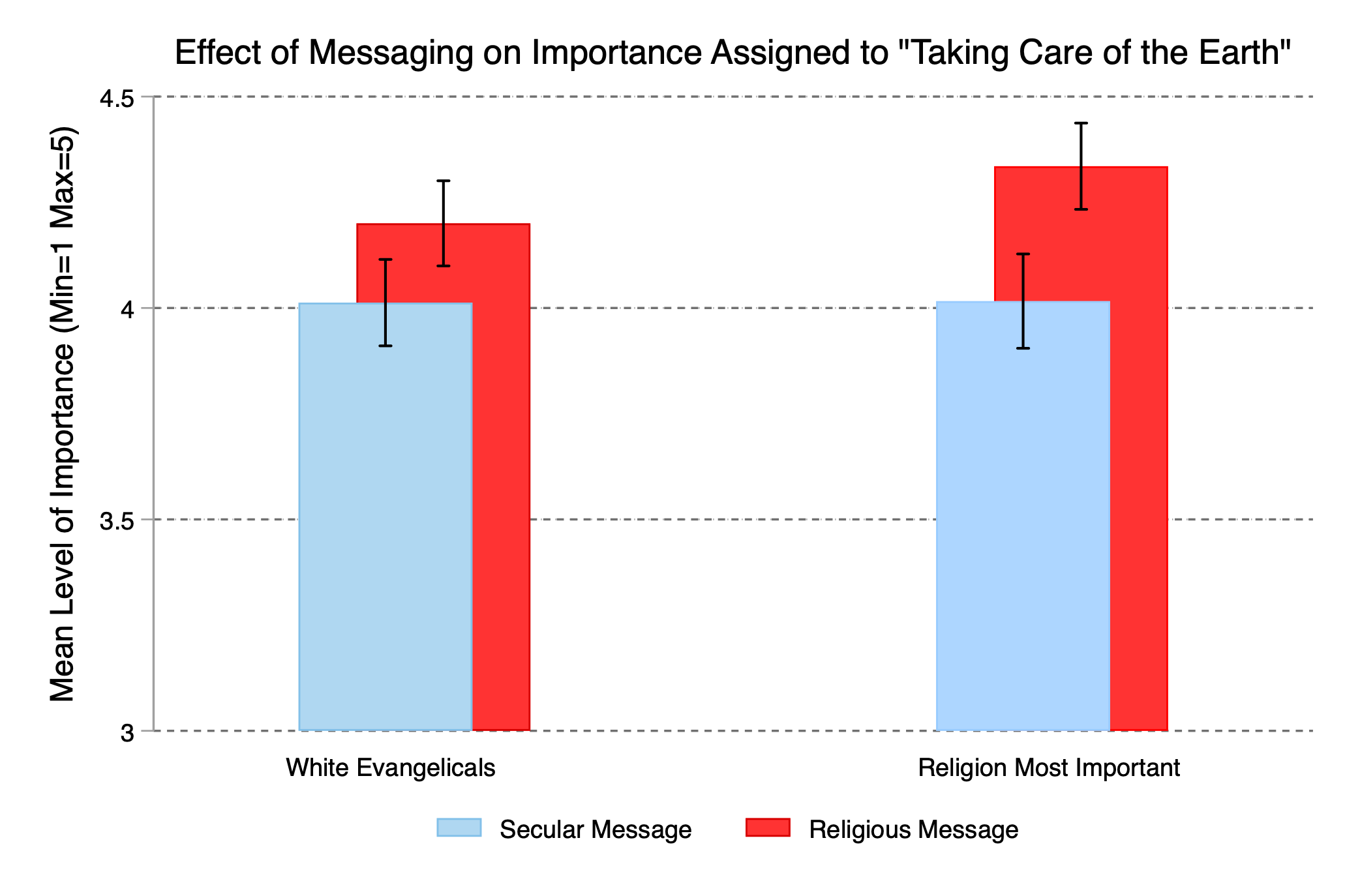Youssef Chouhoud, Ph.D., is an assistant professor of political science at Christopher Newport University, and a 2023-2024 PRRI Public Fellow. His research in the United States and the Middle East models support for core democratic norms, with a focus on political tolerance and he also has an extensive record of public scholarship on American Muslim attitudes and behaviors.
Human activity as the primary driver of climate change has become a firm article of faith (backed by scores of evidence) in the global scientific community. However, the average American is not nearly as convinced. While a gap in knowledge is certainly part of the reason that the American public lags behind the scientific consensus, as with any number of politicized issues over the past few years, even a solid scientific foundation can prove ineffectual in the face of partisan polarization.
All is not lost though. As PRRI’s 2023 Climate Change survey found, a clear majority of Americans (61%) believe that climate change is primarily caused by human activity. Not surprisingly, the widest divide on this question is the 55-point gulf between Democrats (83%) and Republicans (28%).
Other characteristics, including age and education, also influence Americans’ views on this topic. Millennials (68%) and Gen Zers (67%) are more likely than any other generation (58% of Gen Xers, 55% of baby boomers, and 47% of the Silent Generation) to pin the blame for climate change on human activity while those with a college degree (70%) are more likely to do so compared with Americans who did not graduate from college (55%). Religion, too — more specifically, religious identity and salience — also drives Americans’ views on this matter. Both white evangelical Protestants (31%) and those who report that religion is “the most important thing” in their life (39%) are significantly less likely than other Americans to say that the causes of climate change are anthropogenic.
The survey also asked about support for taking action to address climate change. Specifically, it gauged support for five policies 1) increasing federal funding for renewable energy research, 2) placing stricter limits on industrial emissions, 3) taxing fossil fuel producers, 4) placing additional restrictions on automobile emissions, and 5) phasing out gas-powered vehicles altogether. PRRI combined these questions into an additive scale, ranging from 0-1, where lower scores indicated greater opposition to these policies and higher scores signaled greater support.
To better understand the impact of religion on Americans’ support for climate action, I ran a linear regression (a statistical method used to isolate the independent effect of a single factor on an outcome taking into account — or “controlling for” — other relevant variables).
The regression model seen below controls for the influence of age, education, race, sex, income, parental status, marital status, political ideology, and party affiliation allowing us to observe the impact of religious behavior as well as religious identity and salience.

The findings of this analysis paint a consistent, and rather stark, picture. First, it appears that religious behavior does not exert any meaningful influence on support for climate action policies. Americans who pray at least weekly do not support such policies any more or less than those who do not pray at least weekly. The same goes for Americans who attend services at least weekly and those who read scripture at least weekly.[1]
When it comes to religious identity and salience, however, we find a clear effect. Those who say that religion is the most important thing in their lives hold notably lower levels of support for climate action than those who assign religion any lesser degree of importance.[2] The same goes for white evangelicals compared with all other faith groups and the unaffiliated.[3] These two factors are the strongest negative predictors in the model and, for reference, have magnitudes that essentially cancel out the positive effect of having a college degree. In sum, it is not religious practice, but religious identity and importance that depresses support for climate action.
Could those who are most negatively inclined to support policies that address climate change be convinced otherwise? Fortunately, the PRRI survey included an experimental component that helps us answer that question. The survey asked, “How important, if at all, are each of the following to you as a reason for protecting the environment?” followed by a number of “reasons” with response options ranging from “Not at all important” to “Extremely important.” For each “reason,” half the sample randomly received one “secular” variation while the other half received a different “religious” wording on the same theme. This survey design (similar to a placebo and a treatment in the medical context) created two groups that are presumptively identical save for the wording variation.

In the “secular” variation, respondents rated the importance of “Respecting and taking care of the earth,” while in the “religious” variation, respondents were asked about the importance of “Living up to our God-given role as stewards to take care of the earth.” The difference in the responses generated by these variations among white evangelicals and Americans who say religion is “the most important thing” in their lives, shows that the religious wording moved both groups in a more conservationist direction than the secular wording. Thus, it appears that these Americans’ attitudes on the environment, and the role we play in protecting it, may be more malleable than our polarized discourse would have you believe.
Ultimately, politicians, advocates, faith leaders, and scientists should bear in mind that religion has the potential to help us understand both where people are on climate change issues, and also how they can potentially be moved.
[1] Those who pray, attend religious services, and read scripture once or twice a month, a few times a year, seldom or never were combined in the regression analysis for ease of interpretation.
[2] Those who say that religion is one among many important things, religion is not as important as other things, and that religion is not important in their lives are combined in the regression analysis for ease of interpretation.
[3] All other faith groups and the unaffiliated were combined in the regression analysis for ease of interpretation.